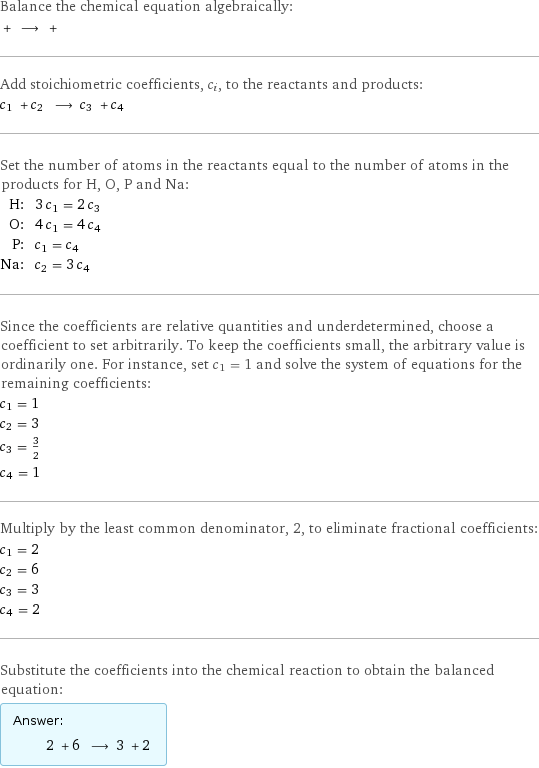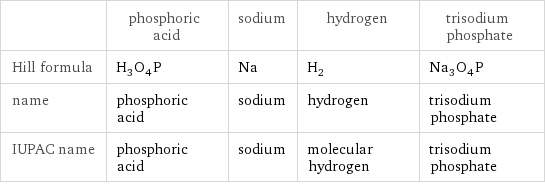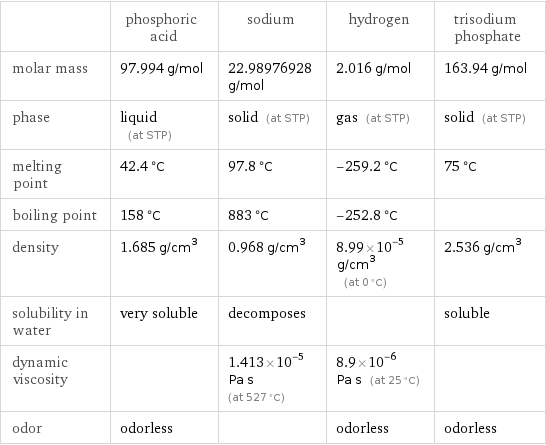Input interpretation

phosphoric acid + sodium ⟶ hydrogen + trisodium phosphate
Balanced equation

Balance the chemical equation algebraically: + ⟶ + Add stoichiometric coefficients, c_i, to the reactants and products: c_1 + c_2 ⟶ c_3 + c_4 Set the number of atoms in the reactants equal to the number of atoms in the products for H, O, P and Na: H: | 3 c_1 = 2 c_3 O: | 4 c_1 = 4 c_4 P: | c_1 = c_4 Na: | c_2 = 3 c_4 Since the coefficients are relative quantities and underdetermined, choose a coefficient to set arbitrarily. To keep the coefficients small, the arbitrary value is ordinarily one. For instance, set c_1 = 1 and solve the system of equations for the remaining coefficients: c_1 = 1 c_2 = 3 c_3 = 3/2 c_4 = 1 Multiply by the least common denominator, 2, to eliminate fractional coefficients: c_1 = 2 c_2 = 6 c_3 = 3 c_4 = 2 Substitute the coefficients into the chemical reaction to obtain the balanced equation: Answer: | | 2 + 6 ⟶ 3 + 2
Structures

+ ⟶ +
Names

phosphoric acid + sodium ⟶ hydrogen + trisodium phosphate
Chemical names and formulas

| phosphoric acid | sodium | hydrogen | trisodium phosphate Hill formula | H_3O_4P | Na | H_2 | Na_3O_4P name | phosphoric acid | sodium | hydrogen | trisodium phosphate IUPAC name | phosphoric acid | sodium | molecular hydrogen | trisodium phosphate
Substance properties

| phosphoric acid | sodium | hydrogen | trisodium phosphate molar mass | 97.994 g/mol | 22.98976928 g/mol | 2.016 g/mol | 163.94 g/mol phase | liquid (at STP) | solid (at STP) | gas (at STP) | solid (at STP) melting point | 42.4 °C | 97.8 °C | -259.2 °C | 75 °C boiling point | 158 °C | 883 °C | -252.8 °C | density | 1.685 g/cm^3 | 0.968 g/cm^3 | 8.99×10^-5 g/cm^3 (at 0 °C) | 2.536 g/cm^3 solubility in water | very soluble | decomposes | | soluble dynamic viscosity | | 1.413×10^-5 Pa s (at 527 °C) | 8.9×10^-6 Pa s (at 25 °C) | odor | odorless | | odorless | odorless
Units
